Prefer listening to reading? Hear this article read by the author above.
In the fairy tale of Rip Van Winkle, a villager living in New York state in the 1700’s wanders into the wilderness, falls asleep, and wakes up to discover a different world. His beard is a foot long, no one in town recognizes him, and something called The American Revolution has happened. He is a stranger in a strange land.
Let’s imagine a modern version of Rip Van Winkle: a man who dozed off in the year 1917, slept for a century, and woke to a drastically different world — one of transcontinental flights, pocket-sized supercomputers, political representation of women and minorities, and millions rising out of poverty worldwide. Our Rip Van Winkle would be shocked, fascinated, and overwhelmed.
Luckily for Rip, if he needed to relax, there’s one place he could go to immediately feel at home: school. The average schoolroom of 2017 would feel shockingly similar to the schoolroom of 1917: a welcome relief for any confused time traveler. But as Rip started learning more about the modern world, the schoolroom wouldn’t relax him for very long.
Why, he might ask, hadn’t a century of progress changed how children are educated? In a world where agricultural and factory labor were being replaced by creative and non-routine jobs, why did students still sit in rows and do repetitive exercises — even if these exercises were on iPads instead of paper? In a world where the most successful people blazed their own trails, why did schools seem to mostly teach young people to follow orders?
Seeing all this, would a modern Rip van Winkle even send his kids to school? Or would he see school as helplessly behind the times and opt for a radically different path to give his children the education they actually needed to thrive in the modern world?
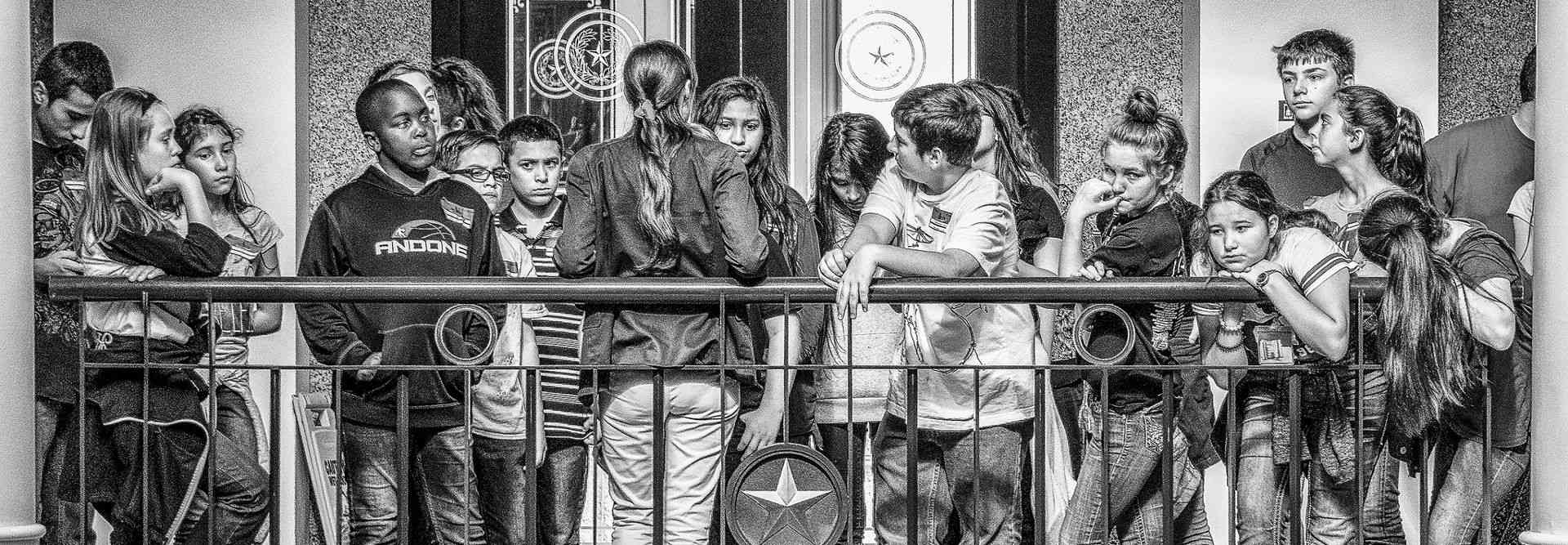
School: Ideal vs. Reality
One reality that liberals and conservatives have long agreed upon is the “failure” of school. In an era of unprecedented political division, this should tell us something. Everyone agrees that schools need to change, get better, and stop “failing” their students.
Yet at the same time we criticize schools, we continue participating in them, funding them, and accepting their demands. We send our kids to school for a majority of their waking hours, often against their will. We revere test scores and grade point averages. Why do we demonstrate so much faith in something of which we claim to disapprove? Our hypocrisy stems, I think, from confusing the ideal of school and the reality of school.
As an ideal, school is beautiful. A group of bright-eyed students sits in an well-ordered classroom, enthralled by by a passionate and well-trained teacher. Young people of all races and social classes work together harmoniously, opening their minds and discarding their bigotries. A common core of knowledge is instilled in a new generation of young people, preparing them for rigorous college studies, globally competitive careers, and lives as engaged citizens.
But here’s the problem: How soon did your bullshit detector start going off? The first sentence? The second? We have a beautiful vision of what school could be, but an unending parade of news reports, anecdotes, and personal experiences tells us differently. Choose your poison: bullying, boredom, over-medication, teenage suicide, cheating, lack of preparation for college, lack of transferable career skills: these are the realities of modern schooling.
Not every school has these problems, of course — but too many schools have too many of them. I went to well-funded public schools in southern California in the ’80s and ’90s. I remember the bullying, harassment, fights, and racial conflicts — virtually unmoderated by school staff. I remember the feelings of irrelevance, disconnection, and soul-sucking boredom. I remember the unquestionable student culture of copying, cheating, gaming the system, and doing as little as possible.
I also remember the friends I made, a few great classroom moments, and the handful of teachers who inspired me. There are good memories alongside the mediocre ones. Because time heals many wounds, and it’s easy to look back on school and remember the highlights, the adventures, and the magic moments of youth — most of which probably happened outside the classroom — and forget the inane homework, the bathroom passes, the window-gazing, and the tedium of waiting for teachers to address discipline issues for 30 minutes so that 15 minutes of engaged learning might take place. Why on earth would we remember those parts of school?
We leave school, and few of us go back. We forget the bad experiences and glorify the good ones. And then, after 10 or 20 years of adult life, we decide that it’s time to send our own kids to school. But if we are to clearly assess the reality of school, we must see clearly. And to do this, it helps to listen to those who have worked on the inside. Here are a few of their voices.
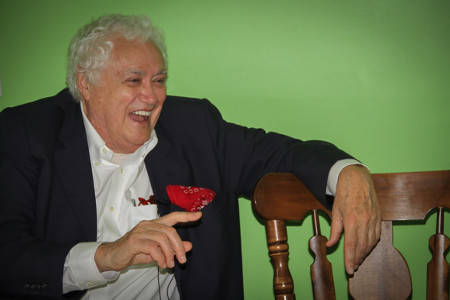
John Taylor Gatto spent 26 years as a public school teacher in New York City, helping kids get out of his classroom and into their communities to do service projects, apprenticeships, start businesses, and advocate for political causes. He won the New York City Teacher of the Year award three years in a row, and then the New York State teacher of the year award, before quitting his job because he didn’t want to make a living “hurting kids” anymore. Gatto started writing and speaking widely about the system in which he believed he wasn’t really teaching academics but rather teaching seven hidden lessons: confusion, class position, indifference, emotional dependency, intellectual dependency, provisional self-esteem, and the idea that you cannot hide from authority. It was Gatto who inspired me, at age 21, to leave my own path in the sciences to become a full-time student of (and advocate for) alternative education.
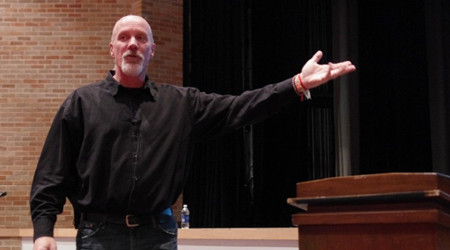
Will Richardson spent two decades as a public school educator before he left to begin speaking to parents, teachers, and administrators about the obvious realities of school that few educators want to discuss — what he calls the “elephants in the (class)room.” Some of these elephants include: the fact that most students forget most of the content they “learn” in school; most students are bored and disengaged in school; we don’t assess much of what matters for future success; our curriculum is just a guess; and informal learning is paramount in an age of information abundance, where those who can teach themselves new things using a variety of sources will trump those who only know what they learned in school. While many people pay lip-service to “21st-century learning skills,” Will offers radical, concrete suggestions. For example, when students are taking tests, why not let them use theirs books, phones, and any other resources they can muster? That’s how learning works in the modern world and workplace, so why not in schools?
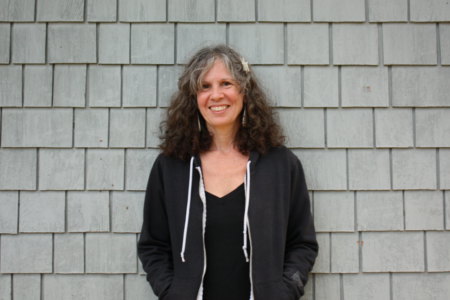
Grace Llewellyn began her teaching career at an idyllic, small, private independent school in Colorado with only 19 students in her class. But as she would soon write in her underground classic book, The Teenage Liberation Handbook: How to Quit School and Get a Real Life and Education, Llewellyn realized that “this small, ‘caring,’ ‘creative’ school was fundamentally the same as any ordinary public school, because it controlled students’ lives.” She left teaching to begin advocating for young people to drop out of school (more accurately: rise out of school) and start regaining true control of their lives. Llewellyn’s book was another major influence on my choice to work with teenagers outside of school; here’s the line she hooked me with: “How strange and self-defeating that a supposedly free country should train its young for life in totalitarianism.”
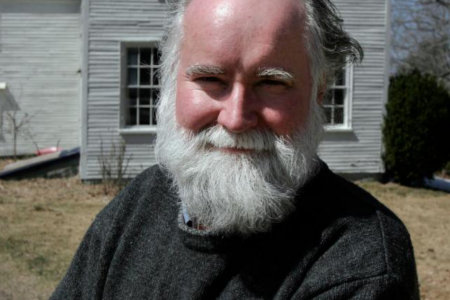
The novelist Nicholson Baker spent a month substitute teaching in his hometown and observed how much of students’ time was simply wasted. His words summarize my own time in high school better than any others I’ve read: “Teachers spend half their time shouting themselves hoarse, and young adults are infantilized. Their lives are absurdly regimented. Every minute is accounted for. They sit in one hot room after another and wait for each class to end. Time thickens. It becomes like saltwater taffy — it becomes viscous and sticky, and it stretches out and it folds back on itself through endless repetition.”
Disgruntled ex-teachers make for the most powerful critics, but we needn’t listen only to them. The next time you meet someone who works in school, ask them about their daily experience. Not the vision, but the reality. How engaged are the kids? How much of their time is spent meaningfully and productively? How much of it is spent cajoling them into sitting still, policing them, and tackling discipline issues? How much autonomy do teachers have to do their best work, and how much are they merely administrators of standardized tests? What is life actually like for the kids and adults spending the hours, weeks, and years of their lives in the institution we call school?
We all want school to “work.” We want to realize the beautiful potential of its ideal. But if the reality of school consistently contradicts our vision of school — as it has for decades, if not generations — then what are we thinking?

A Better Definition of Education
We continue to revere school because we believe that school is the best place to gain an education. But what does that mean?
When most people talk about getting an “education,” they’re talking about accumulating degrees, diplomas, and certificates. We meet someone with a master’s degree and call her “well-educated.” But of course, it’s not just about the piece of paper: if Harvard, Yale, and Stanford all issued honorary Ph.D.s to every person on earth, that would not be educating the world. That would be a sham.
So perhaps an education is “a degree that you have to work for.” But what about the college student who drops out one semester shy of finishing his degree — is he uneducated? What about the massive number of accomplished people who never finished college or high school, the millions who teach themselves things online each day, or the generations upon generations who built the world we know before formal schooling was invented in the late 1800s? Receiving a degree is obviously not mandatory for education to take place.
Maybe education is really about power in the workplace. Educated people get paid more — the evidence is clear there. So why don’t we just equate education with job skills and financial return on investment? To answer this I defer to the former Yale professor William Deresiewicz, writing in defense of the liberal arts:
“You need to get a job, but you also need to get a life. What’s the return on investment in college? What’s the return on investment of having children, spending time with friends, listening to music, reading a book? The things that are most worth doing are worth doing for their own sake. Anyone who tells you that the sole purpose of education is the acquisition of negotiable skills is attempting to reduce you to a productive employee at work, a gullible consumer in the market, and a docile subject of the state.”
Clearly we want more from “education” than just job skills; why else do we continue to value literature, history, and art? Why else might a wilderness trip, a good discussion, a serious relationship, or an international adventure feel more significant than an entire year of school? An education that only prepares someone to make money is a narrow education indeed.
So what does it mean to be educated? Let me share the best definition I’ve run across after a decade and a half of searching, from John Taylor Gatto:
“Whatever an education is, it should make you a unique individual, not a conformist; it should furnish you with an original spirit with which to tackle the big challenges; it should allow you to find values which will be your roadmap through life; it should make you spiritually rich, a person who loves whatever you are doing, wherever you are, whomever you are with; it should teach you what is important, how to live and how to die.”
If that’s too wordy, allow me to propose a one-sentence condensation: an education is the capacity to author your own life instead of merely accepting the one handed to you.
First, let’s highlight what’s absent from this definition: grade point average, standardized test scores, and college ranking. These are the primary numbers that we use to rank and compare each other, the numbers that we lose sleep over. Yet which of these numbers really matter in the end? Adults don’t talk about their test scores at dinner parties, at least, none that you want to spend time with. No one gets hits by a bus and lies there wishing they’d gone to a higher-ranked college; they think about whether they’d treated their loved ones well, followed their dreams, and led a purposeful life. If an education is as important as we make it out to be, then I agree with Gatto that it must deal with the biggest questions in life — not just the numbers that lend themselves most easily to statistics, reports, and comparisons.
Those from a conservative background may see this definition as an exhortation to abandon family traditions and societal norms; those from a liberal background may hear a call for hyper-individualism. But authoring your own life doesn’t necessarily mean choosing a radically different path from that of your family, religion, or culture. It simply demands an examined, informed choice rather than a blind or coerced one.
When you choose your own path, you are free to choose from one of life’s many established routes. There’s nothing wrong with becoming an accountant, plumber, or stay-at-home parent. But if you take one of these paths as an educated person, it means that you’re not just doing it because someone told you so. You’re doing it because you understand your commitment, you’re aware of your alternatives, and you genuinely believe that you are making this choice for yourself.
The ideas I’m arguing for here are simple and, I believe, non-controversial: having more control over your life is better than having less control. Maximizing the time you spend doing things for their own sake is superior to time spent doing things out of obligation, shame, fear, or coercion. An educated person knows what she wants to do and then she does those things. She has a vision, and then she executes that vision.
But could education really be this simple? Could it really just be about “doing your own thing?” Yes, but in this simplicity there is also depth. Self-determination theory, a widely accepted theory of human motivation, proposes that all people have three innate needs: autonomy (having control over one’s actions), competence (building mastery), and relatedness (connecting positively with other humans).
Eine kurze Einführung in die Selbstbestimmungstheorie (1:49)
When these needs are fulfilled, humans can act with intrinsic motivation: they can start to do things (even very challenging things) for their own sake. But when these needs are not fulfilled, intrinsic motivation falters; we no longer want to do things for their own sake. That’s when extrinsic motivation is required — in other words, threats and bribes — to motivate people to take action.
Intrinsic motivation is what we need more of in this world. History is one long bloody record of wars, slavery, servitude, religious persecution, and other forms of extrinsic motivation — with one brief, bright window in the last 200 or 100 or 50 years (depending on who we’re talking about) where common people actually had the chance to do their own thing.
Yet extrinsic motivation is so clearly the lifeblood of schooling, with its elaborate system of grades, gold stars, class rankings, detentions, and low-level threats. This makes sense in light of self-determination theory, because school does little to fulfill students’ basic needs for autonomy, competence, and relatedness.
- Autonomy is a joke in school, unless you consider choosing an elective class or essay topic to be “real choice.” You have to get permission to simply go to the bathroom.
- Competence cannot develop in school because students are forced to learn a little about everything and deeply about nothing. And if your interests lie outside the traditional academic subjects — if, let’s say, you want to design video games — you stand almost zero chance of developing mastery while at school.
- Relatedness, which means having high-quality personal relationships and a sense of belonging, is perhaps the young person’s most pressing need. But how can relatedness develop in the tightly regulated sphere of the classroom and the fleeting moments of lunch and recess? The social environment of school more closely resembles The Lord of the Flies than any actual community.
If we are preparing young people to act with intrinsic motivation in this world — to live lives of purposeful self-direction — then we are indeed failing. Because in most schools there are no real choices to be made, no real skills to be developed, and no chance to genuinely connect with other young people. It’s no wonder that if you had to choose a societal institution that most closely resembles school, it would be prison.
Whatever an education is, it must empower you to lead your own life. It must minimize your chances of being manipulated, of being made a pawn, of being an actor in someone else’s play. Any place that claims to “educate” must give young people actual autonomy, help them develop actual competencies, and facilitate actual social connections. It must produce self-aware and self-motivated humans, not anxiety-riddled worker bees awaiting their next orders. Places of education must lift people up and bring them together — as we envision the ideal of school — not crush their spirits and isolate them — as too often is the reality of school. But do such places exist? Can they exist?
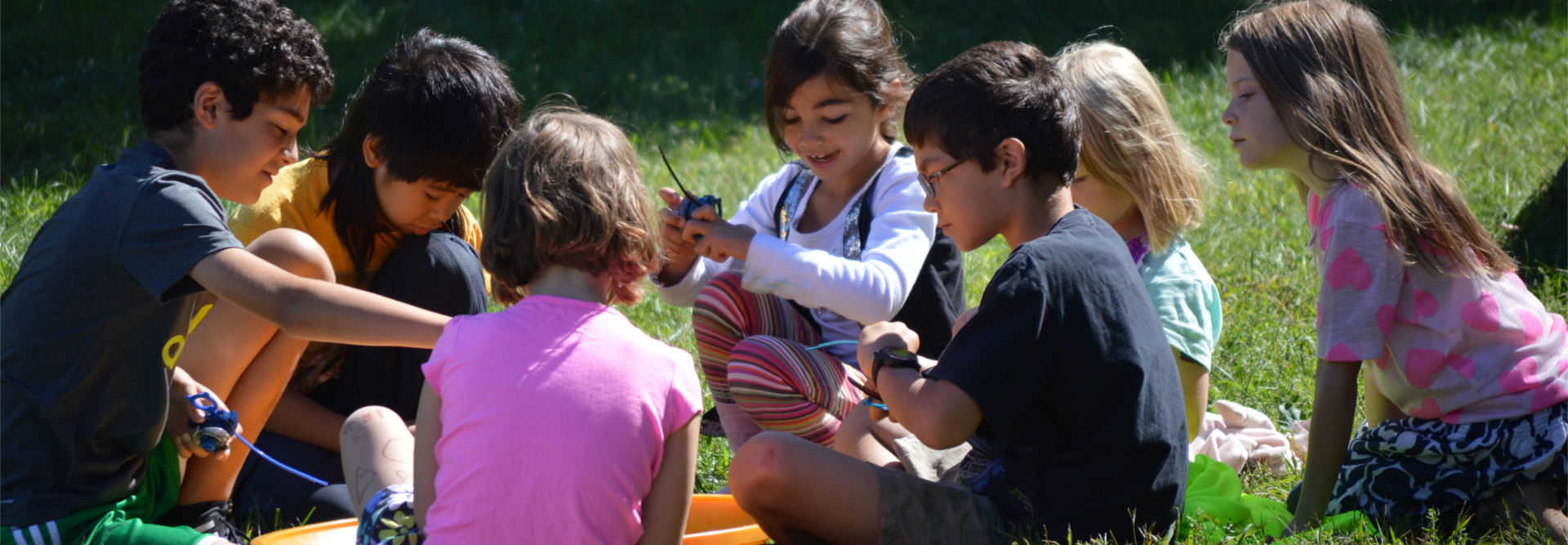
The Golden Era of Self-Directed Education
For the past two decades, a quiet revolution in the United States has been inspiring the next generation of educational alternatives. The earlier, bigger, noisier revolution, of course, was the counterculture of the 1960s, which brought us the first generation of school critics and inspired a tidal wave of new alternative schools and colleges. But the empire struck back, most of the radical schools closed, and the educational establishment returned in full force in the seventies and eighties with a renewed focus on testing. It wasn’t until the final decade of the twentieth century that new life was breathed into the alternative education movement. Chalk it up to the fall of the Berlin Wall, the advent of the Internet, the prosperity of the Clinton era, or the hippies finally having children. For one reason or another, a number of educational experiments began gaining traction, and the momentum has only been growing for the past 20 years.

In Massachusetts, middle-school teachers Ken Danford and Joshua Hornick quit their jobs in the mid-nineties to create a learning center that offered all the benefits of a great progressive school — caring staff, interesting classes, lots of time for deep discussion — with none of the coercive or arbitrary restrictions of school. Thus was born North Star: Self-Directed Learning for Teens — a place that operates more like a community center than a school, where members are free to attend whatever classes or clubs or activities that they please, with the only requirement being that they meet with an staff advisor periodically. Members can choose to attend between one and four days a week, many holding part-time jobs or taking college classes at the same time. North Star charges between $3,000 and $7,500 per year (depending on how many days a week you attend) and has never turned away a family due to lack of ability to pay the fees. Inspired by the North Star model, more than a dozen other groups have opened similar learning centers over the past decade in the U.S. and Canada.
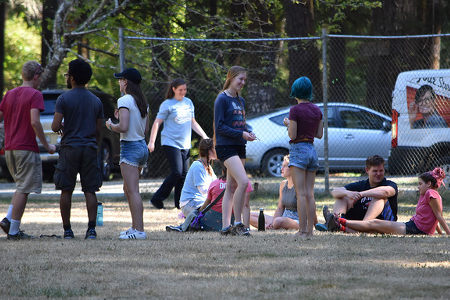
Grace Llewellyn observed in the nineties that homeschooling, which had recently become legal in all fifty United States, was the quickest path to educational freedom for young people. Llewellyn made it her mission to promote homeschooling, but not in its traditional, religiously-affiliated form; she advocated for unschooling — the more radical, self-directed version of homeschooling — and started a summer camp for teenage unschoolers called Not Back to School Camp (where I’ve worked for more than a decade). Today in the United States, you can leave school early and be supported by countless local groups, online communities, and conferences. Homeschool “graduates” experience few barriers to entering college and the workplace. And you don’t have to just choose between homeschooling and unschooling: families are now experimenting with micro-schooling, worldschooling, and other novel variations of homeschooling that offer varying levels of structure, freedom, and formal academics.
Democratic free schools are places where all members of the school have an equal vote on all matters of substance, including the hiring and firing of staff. (Yes, even the 5 year olds get to vote on who to hire!) Such schools were very popular in the late sixties and early seventies and then dropped off the map — but one of them, the Sudbury Valley School, has doggedly persisted since 1968. Largely thanks to the Sudbury’s leadership, the nineties and early 2000s saw a boom in Sudbury-model schools and other democratic schools, both in the U.S. and around the world.
In the realm of public schools, it has always been difficult to grant students the freedoms and responsibilities that private organizations like North Star or Sudbury might — but some inspiring charter and magnet schools have emerged nonetheless, including places like High Tech High in San Diego, Science Leadership Academy in Philadelphia, and Jefferson County Open School in Denver.
The traditional progressive alternative schools — Montessori, Reggio Emilia, and Waldorf — continue spreading throughout the world, offering a happy medium between traditional school and more radical alternatives.
Finally, in just the last few years, the worlds of tech entrepreneurship and self-directed learning have merged to produce a number of innovative alternatives such as Agile Learning Centers, Acton Academy, AltSchool, BrightWorks and Khan Lab School. These schools and centers make heavy use of information technology and the principles of design theory, lean business, and the “flipped classroom” to create learning environments more in step with the 21st century.
The punch line here is: Not only do educational alternatives exist — they’re positively thriving. Alternative schools and learning centers are popping up everywhere. The legal right to homeschool exists in North America, the United Kingdom, Australia, New Zealand, South Africa, and a growing number of countries across Europe, Asia, and Latin America. A rising respect for entrepreneurship is lending credibility to self-directed learning paths.
For those who wish to author their own lives — and help their children do the same — there is no better time to be alive.
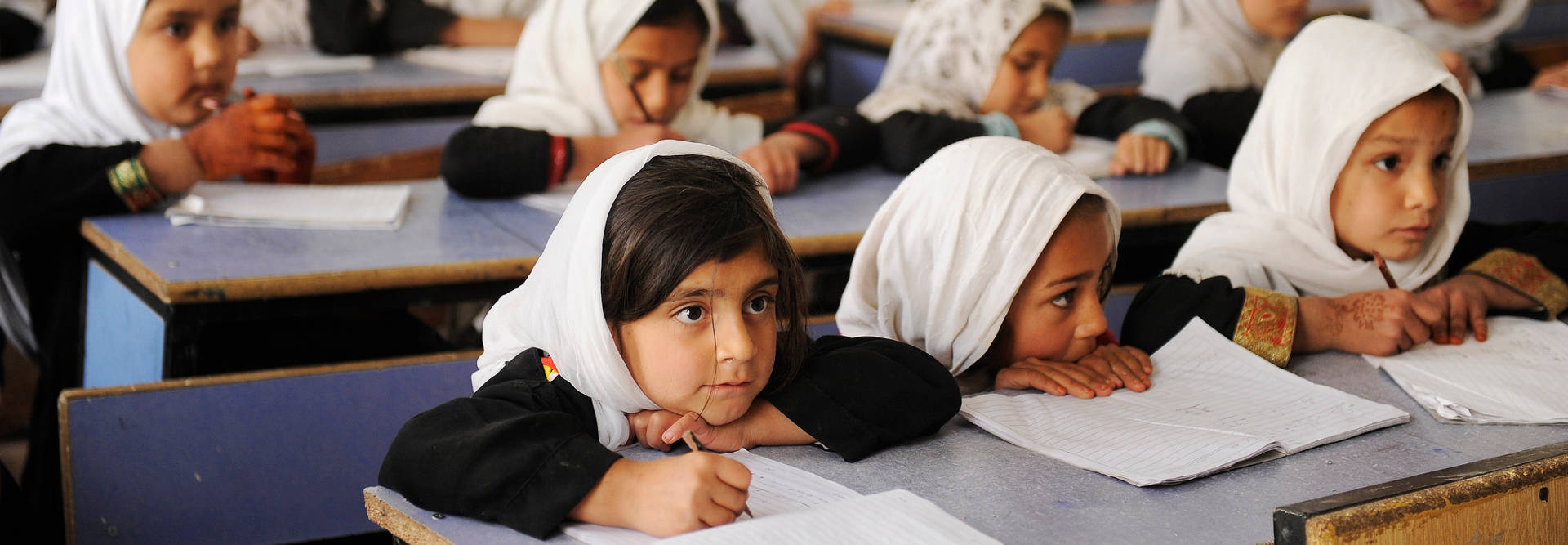
Access and Privilege
Of course, the opportunities of this new golden era don’t extend to all. Because really, who has even heard of “democratic free schools” or “unschooling” except for a small, privileged sector of society? How many of us are lucky enough to live near a highly regarded charter school? How many can afford to pay $25,000 a year to AltSchool or Brightworks, let alone the $3,000-$10,000 tuition of more modest places like Sudbury or North Star? Homeschooling may be free, but how many families can realistically dedicate the time and attention required to do it well? How many countries still outlaw homeschooling and highly alternative schools, and how many make it practically impossible to enter college or the workplace without a high school diploma?
There are valid counterpoints to the rosy picture I’ve painted. And we can go further: What about the disadvantaged children of all nations who just need a warm and safe place to go to during the day — and that place is called school? What about the hundreds of millions of children living in poverty across the world who lack access to even the most rudimentary primary schooling? What gives us — who are mostly Western and prosperous — the right to complain about schools?
It’s true. If your child has a safe public school to attend, staffed with caring and attentive adults, then you have already won the educational lottery. It’s important to acknowledge one’s historical context and place within the world.
But how far does this “don’t complain about it” counterargument go? Let’s imagine you have a child who goes to a decent public school. The critic might say: So what if your kid is bored sometimes? Or they have to do mindless busy-work? Or they get bullied a little? Or the combined weight of tests and grades and homework turns them anxious wrecks? Does it really matter? They go to a good school. Stop whining.
But of course these things matter. This is your child we’re talking about, not some historical statistic. Do you really want them to spend their young lives in a meaningless holding chamber if you can avoid it? Do you really want them to serve as guinea pigs for the next round of federal-level education reform? If your child is obviously floundering in the mainstream system, and you have the means to pursue an alternative path, why on earth wouldn’t you? As William Deresiewicz wrote of the four-year liberal arts college experience: “Is this a privilege that most young people in the world can only dream of? Absolutely. But you won’t absolve yourself by throwing it away. Better, at least, to get some good from it.” Amen. If you have the chance to pursue a true education rather than a mere schooling, use it. Nothing could be more important.
Some people argue that you if come from a place of privilege, you have an obligation to keep your kids in the public school system, because leaving it means taking both your tax dollars and your kid’s positive influence away from other students. They say that education is a public good — a more educated society benefits everyone — therefore we all need to band together to support public schools.
I see the logic of this argument, and I do believe that education is a public good — but I find another argument more convincing. If public school is a sinking ship that does very little actual educating, then I don’t think we help ourselves by rallying around it. I think that privileged families can do more good by experimenting with radical educational alternatives, some of which will fizzle, but some of which will have potential for widespread application. This is how innovations happen: early adopters pave the way for mainstream users. We are not lacking for resources in education, we are lacking for good ideas. These good ideas will not arise from dogged fidelity to the broken old system, but rather from countless little educational experiments, both public and private, combined with novel mechanisms for vaulting the best ideas into stardom, like the recent XQ Super School Project which awarded $50 million to innovative new high school models. John Taylor Gatto’s prescription for fixing the system hits the nail on the head: “only the fresh air from millions upon millions of freely made choices will create the educational climate we need to realize a better destiny.”
Not everyone can pursue alternative education — so if you do, by all means, acknowledge your luck and privilege. But also remember that education and schooling are not the same thing, and you owe no loyalty to schools that do little educating. Instead, employ your privilege to blaze new educational trails in a world that desperately needs them.
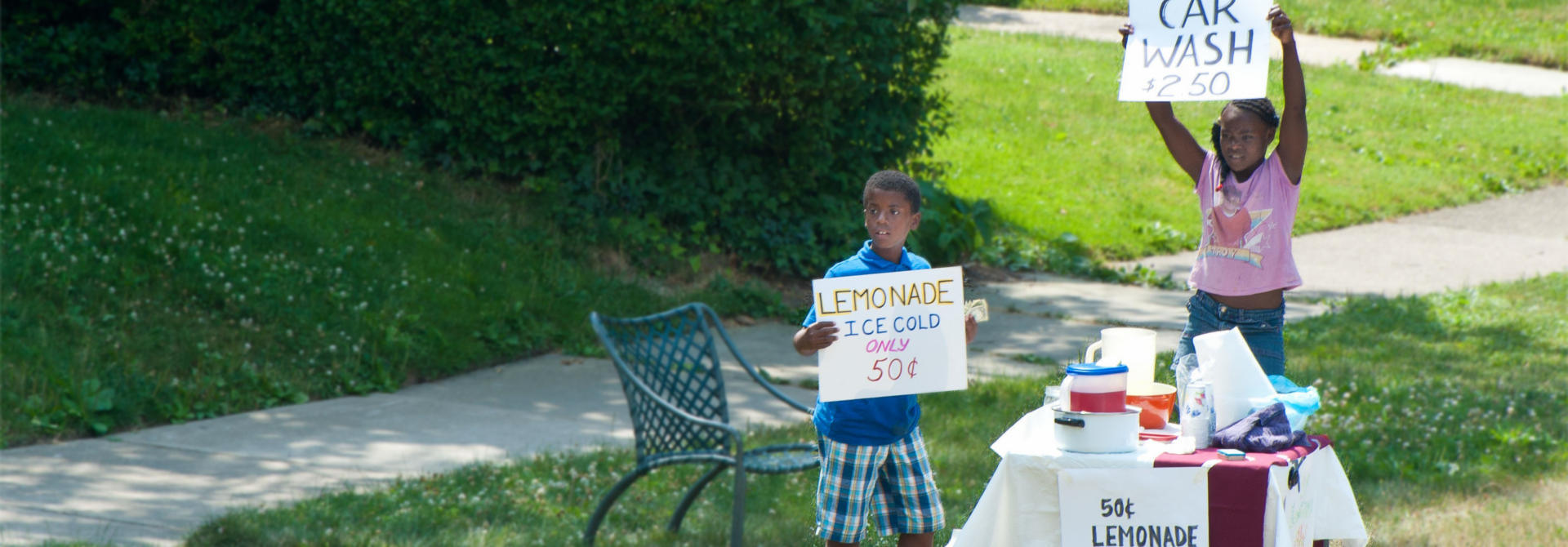
Back to Basics
So would Rip van Winkle send his kids to a traditional school — even a well-funded one? He might not. It wouldn’t just be school that he would rebel against — it would be the entire culture of how we treat kids. He would witness the helicopter parents whose kids can’t walk a quarter mile to school alone and the snowplow parents who call their child’s college professor to argue against a low grade. He would see the hurdles we put in front of young people seeking gainful employment, internships, and apprenticeships. He would reel at how long the age of adolescence now lasts and how little real work we ask of young people.
Of course, Rip van Winkle might also physically discipline his kids, insist that they get full-time jobs at age 14, expect more from his sons than his daughters, and blurt out some racial epithets every now and then. Glorifying the past isn’t the way of the future.
But the simple fact that a person from a century ago would feel so at home in school today should tell us something. The world has changed, and school has not. To the extent that schools ever did provide an education, they have defaulted on their responsibilities. Our idealistic vision of school lives on, divergent from the on-the-ground conditions. Young people move into the world with an unprecedented number of classroom hours under their belt, dollars spent on their schooling, and degrees in their name — but a stunted capacity to author their own lives.
This is our reality, but it does not have to be your reality. If you live near an innovative school or learning center, I hope you’ll tour it. If you’re the citizen of a country where homeschooling is legal, I hope that you’ll consider it as a serious possibility. If you have the means to send your kids to an arts camp, wilderness program, gap year, or similarly educational experience, I hope you’ll extend them the opportunity.
Even if none of these are realities for you, I hope you’ll still believe it’s possible to give your child an education rather than a mere schooling, because authoring one’s life is not (and never has been) the exclusive right of the privileged. Here are a few of the time-worn, low-cost principles that I find myself constantly returning to in my own work with young people:
-
Prioritize engagement over all else. If you are engaged — if you are captivated by what you’re doing, and you see the purpose and relevance in it — then you will enjoy it more, work harder, and learn more along the way. Seek this state of engagement wherever it may lead, even at the expense of grades, test scores, college rankings, and salaries. If your child is fully engaged by traditional school, fantastic; that’s where they belong. If not, it’s time to search hard for alternatives. And if your own work doesn’t engage you — if you go home each day painting a picture of life-as-drudgery — then re-examining your own career may be the one best way to serve your children.
-
Educate by consent. The best educators provide opportunities, model success, and speak candidly — but they do not force. They hold a child to high expectations while remaining on that child’s team. If a standardized test is stressing out your son and providing no benefits to him (only the school system), then help him opt-out of it, as more than 20% of students recently did with standardized tests in New York State. If you raise your daughter as a homeschooler, and at age 12 she expresses a clear desire to go back to school, honor her wishes. If your kids sign up for music lessons and then want to quit when it gets hard, patiently explain why you think it’s worth seeing it through, hear their counter-arguments, make it a discussion, and if they still want to quit — then cancel the lessons. Taking consent seriously does not make you a permissive parent, it makes you a respectful one.
-
Balance life online and offline. Modern information technology is truly revolutionary, and to deny its power is folly. Any young person who cannot run a good Google search is indeed handicapped in their learning potential. But the Internet does not come with a user’s manual; young people need our help discerning truth from fiction and valuable resources from addictive distractions. They also need help seeing what is possible when you put your phone on airplane mode for a few hours (or a few days): the life-changing power of a good book, a long hike, or an unbroken conversation. Model moderation by putting away your own devices before asking your kids to do the same.
-
Give freedom and responsibility. Let your children become the authors of their own lives, right here, right now. Give them real choice, real privacy, real chances to profit, and real chances to fail. Encourage them to to start a business, to offer a service to strangers, to bring a product to market. Let them have their own room, their own phone, their own savings — and when they live in filth, break their phones, or run out of money, let them experience that reality. Instead of scheduling every moment of their days, give them some truly undisturbed personal time. Kick them out of the house on a Saturday afternoon and tell them to come back at dinner time. Don’t save them from every scrape, bruise, failure, or disappointment. Only then will their victories be their own.
In the end, school is a minor actor in the play we call “growing up.” It’s our boring, everyday interactions with children that guide them toward lives of engagement, consent, and responsibility. Every adult is fundamentally an educator, and every parent is fundamentally a homeschooler. Our job is to help kids get a real education, with or without school, and to model success by continually educating ourselves. No mission is more important or rewarding.
This article was originally published by Tipping Points on May 15, 2017. The German translation was made by Unerzogen and reprinted here with their permission.
If you enjoyed this article and feel called to give back to ASDE, here are ways you can support our work:
- Donate money
- Share our content with others! Click one of the buttons above to easily share on Twitter, Facebook, or email.
- Consider becoming a Contributor for Tipping Points






